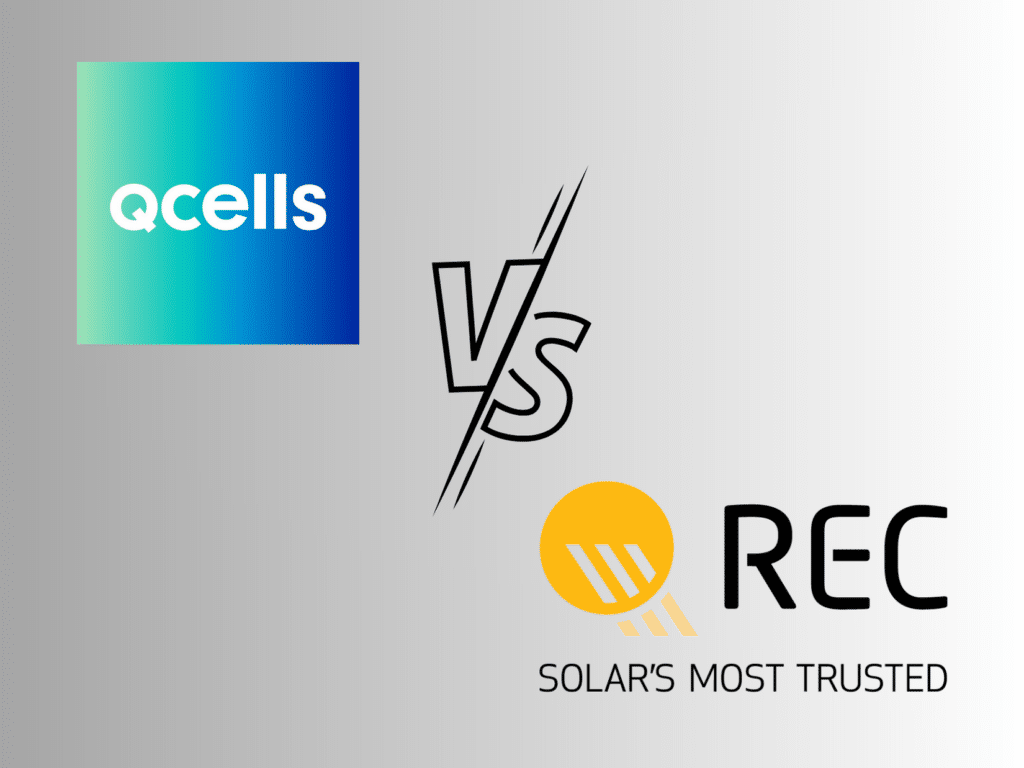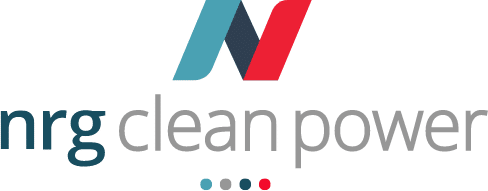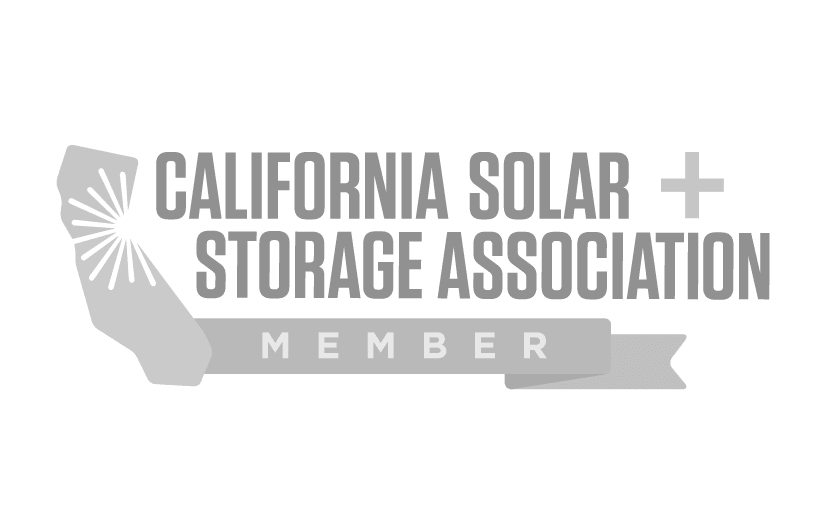
Going solar is one of the best decisions you can make as an individual and for your household. It’s a decision that goes beyond the opportunity to cut down on your utility bills—it’s a major upgrade and a massive step toward a more sustainable lifestyle.
When it comes to making a decision as influential as this one, you must be at your most responsible and pragmatic.
That’s why doing your due diligence will help you make a decision you can stand by for years to come.
You probably already know this, but choosing a solar manufacturer requires lots of research and careful consideration. Today, we compare Qcells with REC Solar in a no-holds-barred review to make decision-making easy for you.
Let’s get started.
Qcells Vs. REC Solar: An Overview
| Qcells | REC Solar | |
| Founded in | 1999, Thalheim, Germany | 1996, Norway |
| Owned by | US Subsidiary of Hanwha Solutions | Acquired by Reliance Industries |
| USP | One of the most consistent and reliable global solar manufacturers for rooftop solar | Manufactures high-quality, high-efficiency solar panels for residential and commercial use |
| Best Known for | Pioneering full square monocrystalline solar cells in solar panels in 2010 | Pioneering half-cut cell technology in solar panels in 2014 |
| Manufacturing Sites | USA, South Korea, China, Malaysia | Singapore, China |
Understanding the Differences Between Qcells and REC Solar
Qcells and REC Solar are popular choices when it comes to rooftop solar installations. Equally well-known with considerable global distribution, this comparison between the two is one of equals—for the most part.
Is one better than the other?
Let’s break down how each solar manufacturer performs in terms of the following solar panel KPIs before drawing a conclusion:
Performance
Whether you want to save on utility bills or gain energy resilience, the performance of your solar panels will determine if your investment will meet your expectations. Although Qcells and REC are both known for manufacturing excellent solar panels, one’s products perform better than the other.
For simplicity, let’s compare Q.PEAK DUO BLK ML-G10+ and the REC Alpha Pure-R, both of which have 410 Wp. Both models use half-cut cells arranged in a gapless array. Although REC uses HJT cells while Qcell uses monocrystalline ones, the technology is comparable.
Qcell guarantees that its solar panels will work at 86% output efficiency through 25 years of moderate use. For REC, you can expect your solar panels to provide 92% output for the same period.
So, in technical terms, REC panels only experience about 0.25% degradation every year. It’s lower than the average 0.5% yearly rate that most PV panels go through.
In addition, REC also subjects its solar panels to rigorous testing, and only one in every 10,000 such panels has been classified as defective.
As far as performance is concerned, REC’s range of solar panels edges past Qcells.
Solar panel performance is significantly influenced by local climate conditions. Qcells’ all-weather technology, which includes robust aluminum alloy frames and advanced Q.ANTUM technology, is designed to handle extreme weather conditions like heavy snow or high winds. This makes it an excellent choice for areas with harsh winters or frequent storms. REC panels, with their superior temperature coefficient, excel in hotter climates, as they lose less efficiency under high temperatures. Homeowners should consider their local weather patterns when choosing between these brands, as both excel in different conditions.
Efficiency
Now, let’s talk of another critical KPI for solar panels: efficiency.
The Alpha Pure-R has a panel efficiency of 21.2%, and the Qcells model offers 20.6% at most. That only accounts for a 0.6% difference in efficiency—almost negligible.
What’s more interesting is the temperature coefficient of these models. It indicates how much the overall output decreases for every one-degree rise in ambient temperature.
The lower the temperature coefficient, the more efficient a solar panel is, especially in the long run.
With a temperature coefficient of -0.24%/°K compared to -0.34%/°K of the Qcells model, REC undoubtedly comes out the winner as far as panel efficiency is concerned.
Other REC models are generally more efficient than Qcells.
But there’s one thing about Qcells you cannot ignore when planning to make a purchase. Its latest all-black models, like the Q.PEAK DUO BLK ML-G10+ discussed above, are excellent performers in extreme weather conditions.
These solar panels are fortified with what Qcells calls “all-weather technology.” The solar cells are set in premium aluminum alloy frames. These frames can withstand high wind pressures of up to 4000 Pa and snow loads of up to 5400 Pa.
To further fortify efficiency, these models also use the brand’s in-house Q.ANTUM technology. It reduces thermal losses through the back of the panel and ensures the solar cells can absorb as much sunlight as possible. So these panels perform very well under low light and high temperature conditions.
Depending on your location, you can get outstanding performance from Qcells and REC Solar. It’s best to consult with your local solar expert to understand which brand has solar panels that will best cater to your requirements.
Cost
Pricewise, Qcells emerges a winner. It costs $2.80 to $2.95 per Watt for installing a Qcells rooftop solar panel. In contrast, REC panels can set you off by $2.90 to $3.60 per Watt.
This means Qcells panels are at least $4,000 cheaper than REC Solar for a standard 8kW set-up that can meet the energy needs of most American households.
You will also break even on your Qcells solar panels quicker than REC Solar. If you’re looking for dependable performance at affordable prices, Qcells should be your top choice.
Beyond cost and performance, sustainability practices are an important consideration when choosing solar panels. Qcells has been recognized for its efforts to reduce its carbon footprint, including producing panels in facilities powered by renewable energy. REC Solar also emphasizes sustainability, being one of the first manufacturers to achieve carbon-neutral production for its Alpha Series panels. These initiatives highlight the companies’ commitments to environmentally responsible practices, adding another layer to the decision-making process.
Warranty
As any solar user will tell you, a good warranty that covers the product and its performance is non-negotiable when it comes to choosing a solar system. Thankfully, both these brands provide excellent coverage.
Qcells provides a 25-year product and power warranty. You can expect any Qcells solar panel to provide 98% output during its first year of installation. The panels experience a standard degradation of 5% every year after that. But even then, the 25-year product warranty has you covered.
On the other hand, REC provides 20 years of warranty on its solar panels and 25 years of performance warranty. You can extend the product warranty by five years under REC Solar’s ProTrust Warranty plan.
The ProTrust Warranty is exclusive to solar installers certified by REC. You can enjoy support for product, performance, and labor charges.
Both brands clearly provide solid warranty plans. REC outshines Qcells because of the added coverage it provides.
Other Products
Going solar is not just about purchasing solar panels. You also need additional products for a fully functioning setup, like batteries and inverters that you can easily couple with the panels to boost utility.
Unfortunately, REC Solar only manufactures solar panels.
Qcells wins when it comes to providing a foolproof storage solution. With its energy storage systems (ESS) like Q.HOME CORE H3S/H7S, you can have 10 to 20kWh of backup power.
Qcells also offers easy remote monitoring of your solar arrangement through the Q.Home Core app.
You can create your own end-to-end solar energy ecosystem by connecting your solar panel to the ESS and the app. It’s a robust solution so you can utilize solar power to its fullest potential—a winning advantage Qcells has over REC.
We always advise rooftop solar users to supplement their solar array with battery storage. While you can always buy solar batteries or inverters from other manufacturers, getting it all from one company is often more cost-effective. It also makes the process of going solar easy and hassle-free.
Both Qcells and REC are continually innovating to stay ahead in the solar industry. Qcells has invested heavily in research and development, introducing modules with larger cell sizes and improved passivation techniques to enhance energy yield. REC, on the other hand, has focused on integrating advanced materials, such as their patented TwinPeak technology, to maximize output and durability. Keeping an eye on each brand’s roadmap can help consumers choose a solution that aligns with future technological advancements.
The Verdict
Installation and maintenance are critical factors that can impact the overall experience of owning a solar system. Qcells panels, with their rugged construction, are easier to handle during installation and are less prone to damage during transportation. REC panels, while slightly more delicate, are known for their excellent long-term reliability and low maintenance requirements. Working with certified installers can further ensure that either system is installed optimally to maximize performance and lifespan

Authored by Ryan Douglas
NRG Clean Power's resident writer and solar enthusiast, Ryan Douglas covers all things related to the clean energy industry.
Source:
https://www.solarreviews.com/blog/solarreviews-top-ten-solar-panel-brands-2023
–
https://news.energysage.com/rec-solar-panels-complete-review/
–
https://www.solarchoice.net.au/products/panels/rec-review/
–
https://www.ecowatch.com/solar/reviews/qcells-solar-panels
–
https://www.forbes.com/home-improvement/solar/q-cells-solar-panels-review/
–
https://www.saveonenergy.com/solar-energy/best-solar-panels/
–

